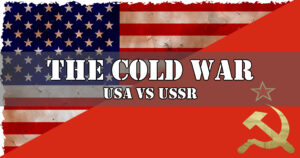What were the key factors that motivated the American colonies to seek independence from Britain, and how did these factors influence the ideological foundation of the new nation?
Migration acts like a cultural melting pot, creating a vibrant "world between the two." Migrants bring their traditions, languages, and customs, blending them with the existing culture. This forms a unique space where new traditions and identities emerge, like art or music that reflects both heritagRead more
Migration acts like a cultural melting pot, creating a vibrant “world between the two.” Migrants bring their traditions, languages, and customs, blending them with the existing culture. This forms a unique space where new traditions and identities emerge, like art or music that reflects both heritages. As migrants adapt to their new home, they might modify their own traditions and even influence the dominant culture, challenging norms and fostering a more inclusive society. Imagine a bridge connecting two cultures – migration allows a constant flow of ideas, people, and traditions across this bridge, creating a constantly evolving space where both cultures are present but transformed. From fusion cuisine to new fashion trends, the “world between the two” is a testament to the power of migration in shaping a richer, more interconnected world.
See less

World War I started due to several key factors: 1. **Assassination:** The killing of Archduke Franz Ferdinand of Austria-Hungary by a Serbian nationalist in 1914. 2. **Nationalism:** Intense national pride and rivalries among countries. 3. **Imperialism:** Competition for colonies and resources. 4.Read more
World War I started due to several key factors:
1. **Assassination:** The killing of Archduke Franz Ferdinand of Austria-Hungary by a Serbian nationalist in 1914.
2. **Nationalism:** Intense national pride and rivalries among countries.
3. **Imperialism:** Competition for colonies and resources.
4. **Militarism:** The arms race and glorification of military power.
5. **Alliances:** Treaties that obligated countries to defend each other, like the Triple Entente and Triple Alliance.
These elements created a tense situation where the assassination triggered a chain reaction, leading to war in July 1914.
See less